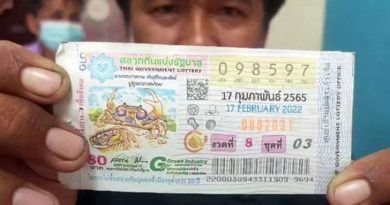Stronger dollar shakes some Asian shares
ASIA markets traded mixed today as investors eyed the dollar for guidance amid growing expectations of a Federal Reserve rate hike in December.
“The implied probability of a December rate hike has surged to 92 percent, so this morning we saw some profit taking and unwinding of activities,” Margaret Yang, market analyst at CMC Markets, told CNBC.
The dollar traded within sight of its highest level in more than 13-1/2 years today as bond yields soared on expectations that President-elect Donald Trump’s economic policies will fuel inflation.
The dollar index, which measures the greenback’s value against a basket of six major currencies, last traded at 99.883. On Monday, it had risen as high as 100.22.If the index climbs above the December 2015 peak of 100.51, it would reach its highest level since April 2003.
Since Trump won the US presidential election last week, the 10-year US bond yield has jumped about 0.40 percentage point to 10-month highs as his policies of heavy fiscal spending and trade protectionism are seen likely to stoke inflation.
In Thailand the Stock Exchange of Thailand index was up by 0.07% or 1.06 points to reach 1,470.29 points with 32.530 billion baht trading value at midday today after being in the negative territory the whole of yesterday and ending at 1,469.23 points, down 1.69% or 25.30 points , in trading value of 58.165 billion baht, Thai News Agency said.
Thirada Charnyingyong, assistant research manager at Phillip Securities (Thailand) said stocks fell yesterday in line with outflow of foreign investment funds with this being a similar pattern in all three TIP countries, which aside from Thailand includes Indonesia and the Philippines, after the US dollar strengthened very quickly.
The greenback’s quick appreciation triggered a new selling pressure to transfer funds to developed markets. It is expected that Thai stocks will continue to be turbulent as this is the pattern during the leg down, she added.
Australia’s ASX 200 fell 0.02 percent, dragged by its materials sub-index, which was down 0.96 percent, and its healthcare sub-index, which was down 1.73 percent.
The Nikkei 225 slipped 0.19 percent, likely taking its lead from the yen’s direction. The yen hovered around the key level of 108, fetching 108.18 per dollar as of 11:39 a.m. HK/SIN, after initially trading as high as 107.76 earlier.
“Although Japanese GDP growth more than doubled expectations in the third quarter, dollar/yen rose as high as 108 [as] Trump’s victory was a game changer for the dollar and stocks,” said Kathy Lien, managing director of FX strategy at BK Asset Management, in a note today
“Hitting 110 is not only possible but likely for USD/JPY but rather than chase the move it may be smarter to wait for a pullback towards 107,” she said.
Chinese markets were in negative territory, the Shanghai composite was down 0.27 percent, while the Shenzhen composite lost 0.045 percent. China is due to release its October foreign direct investment (FDI) figures later in the day. The Chinese yuan weakened to 6.86 against the greenback, as of 10:27 a.m. HK/SIN, its weakest since January 2009, Reuters reported.
Across the Korean strait, the Kospi was down 0.08 percent, while Hong Kong’s Hang Seng gained 0.36 percent.
CAPTION: American 100-dollar bills on a table. Photo: : 401kcalculator.org (CC-BY-SA-2.0)
Source: CNBC’s Aza Wee Sile, Reuters, Thai News Agency and ThaiResidents reporters



